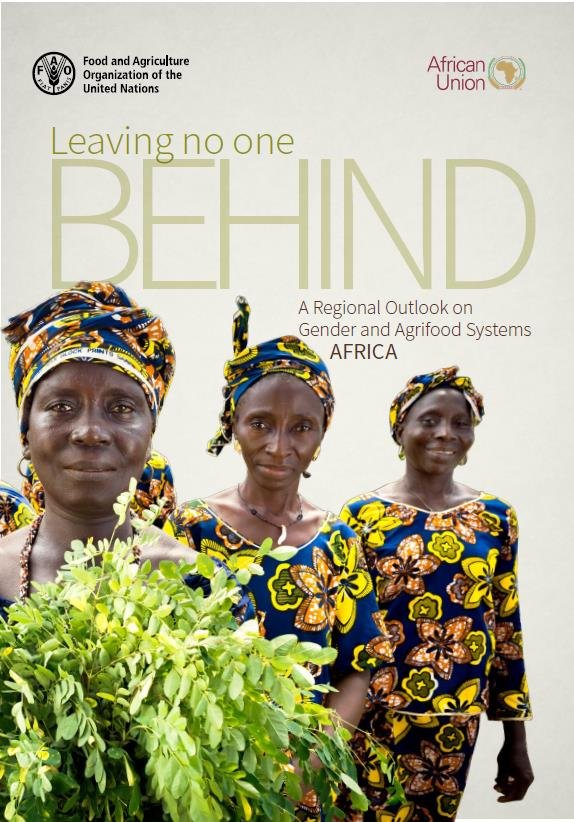 Read this article in French
Read this article in French- Share this article
- Subscribe to our newsletter
A Regional Outlook on Gender and Agrifood Systems
Agrifood systems cannot be transformed unless there is gender equality, states the report Leaving no one behind: A Regional Outlook on Gender and Agrifood Systems, launched in late October 2020 by the Food and Agriculture Organization of the United Nations (FAO) and the African Union.
Based on a review of 40 country gender assessments of agriculture and rural livelihoods, the report provides an in-depth review of the challenges and best practices to empower women in priority areas of the Comprehensive Africa Agriculture Development Programme (CAADP) and the Malabo Declaration.
The report makes recommendations to promote gender equality and women's empowerment to achieve the 2030 Sustainable Development Goals and the African Union's Agenda 2063, including:
- Developing gender-sensitive and gender-targeted activities in food security, nutrition, and resilience.
- Scaling-up female entrepreneurship and women's empowerment in agribusiness. Several countries have set up specific funds for women-owned agribusinesses.
- Ensuring public-private-partnership is inclusive to women to enhance their participation in value chains.
Harnessing women’s potential as "food heroes"
In Africa, women are the backbone of their households, communities and rural economies, as food producers, processors, and marketers. They usually lead nutrition decisions for the family.
The dramatic effects of climate change coupled with the impacts of the COVID-19 pandemic mean women face multiple challenges. The number of people suffering from hunger is rising, and women are more likely than men to be food insecure.
Improving women's status and harnessing their potential as "food heroes" will be critical to ending hunger in Africa, the report argues.
Barriers need to be
Women often have only tenuous access to land - farming with short-term agreements from family or traditional authorities. These fragile rights can disappear overnight, preventing women from planning ahead or engaging in long term conservation farming.
Women benefit less from advanced agricultural processes and tools, agricultural services and training, and have less access to rural financing. They tend to use manual equipment, and purchase fertilizer less often.
Women face barriers to participate in larger-scale and more remunerative value chains. They often lack knowledge on trade standards needed to expand their business, especially phytosanitary standards which involve specialized knowledge. With lower education rates and discriminatory legal environments, women lack access to opportunity, affecting the food security of themselves and their children
(FAO/ile)
Read more and download the report Leaving no one behind: A Regional Outlook on Gender and Agrifood Systems at FAO website





Add a comment
Be the First to Comment